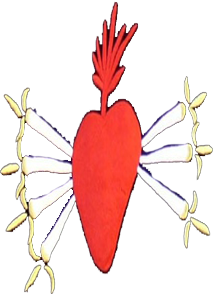|
In the 2007 Auction, for the second consecutive year,
when the bid for the Virgin of Sorrows popularly known as "la
Dolorosa" was deserted, in the end a group of women finally bid
for her, their concern did not stop there, since days later they
convoked a meeting, they finalized the creation of a Brotherhood
to said Virgin. Only of women.
The Brotherhood of Our Lady of Sorrows was founded,
made up of 43 brothers of very varied ages, the election of its
Board of Directors was decided by vote.
The image , baroque
style, 17th century, measures: 1.40, unknown author, located in
the church of Santa María, we do not know anything about it in
documents and we even do not know its origin, which we admit is
from the church of Santa María because it is in her.
Processional image since
1959, which was introduced in the procession of the Holy Burial
on Good Friday in the afternoon, by the priest D. Camilo Pérez
Bragado.
It is the Virgen Dolorosa
de Juni, who, by incorporating the knives into it, has become
the Virgen de las Angustias, with a modification of the type and
invocation.
His face is a mask with an
upward gaze, begging for mercy, because the drama of the heart,
pierced by seven swords (knives), forces it. These seven swords
correspond to the seven pains suffered by the Virgin. Her
intertwined hands hold a rosary, which may come from a donation. A
tight-fitting condom covers the candlestick. On her a mantle
falls folded from the head to the foot of her. On her tunic,
embroidered in red and silver, she wears a heart pierced by
knives. Her
head a golden crown with alternating crosses and beams of rays.
|
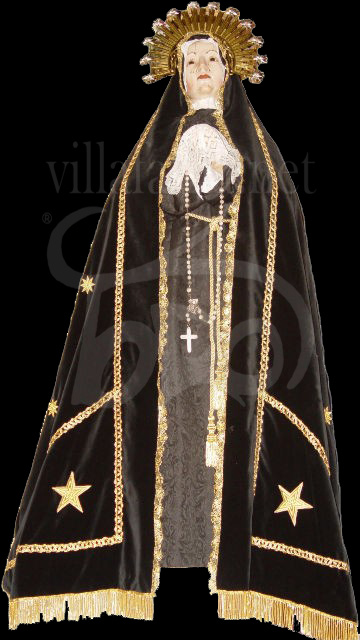
Virgin of Sorrows |
The clothing of the Brotherhood is:
The
totally black tunic, in accordance with the Virgin's clothing,
with a hood to cover the head. They have a yellow cord tied
around their waist. A medal with the anagram of the brotherhood
and the cord is yellow. Black gloves and shoes.
|
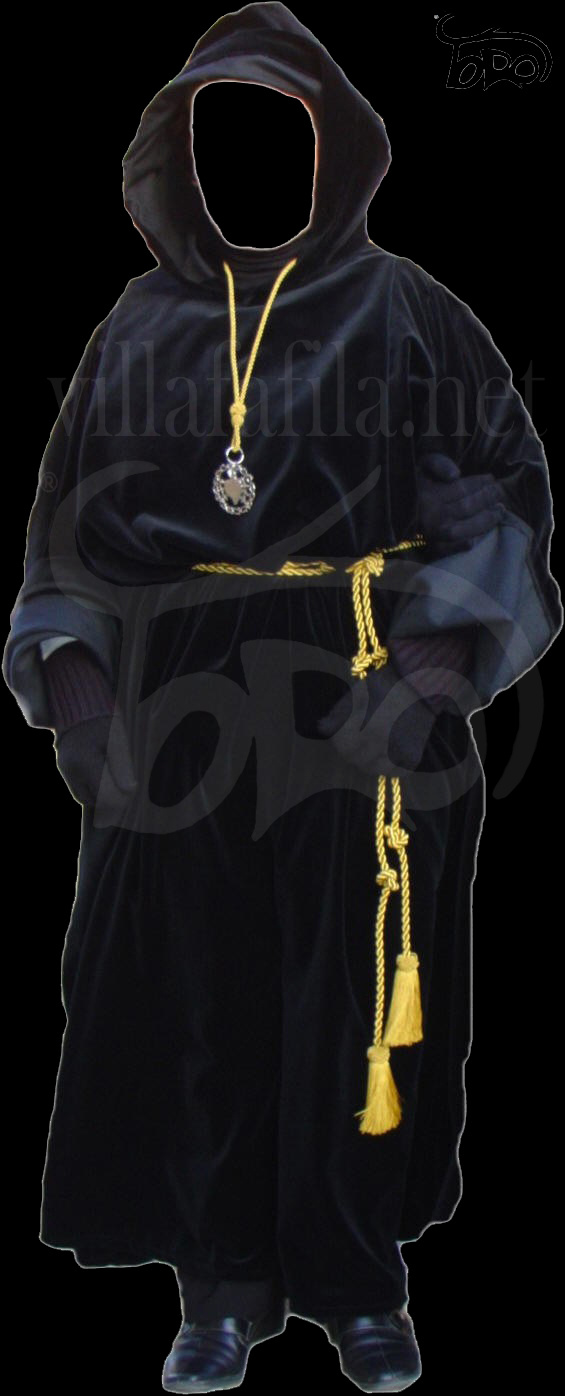
Brotherhood tunic with cord and medallion |
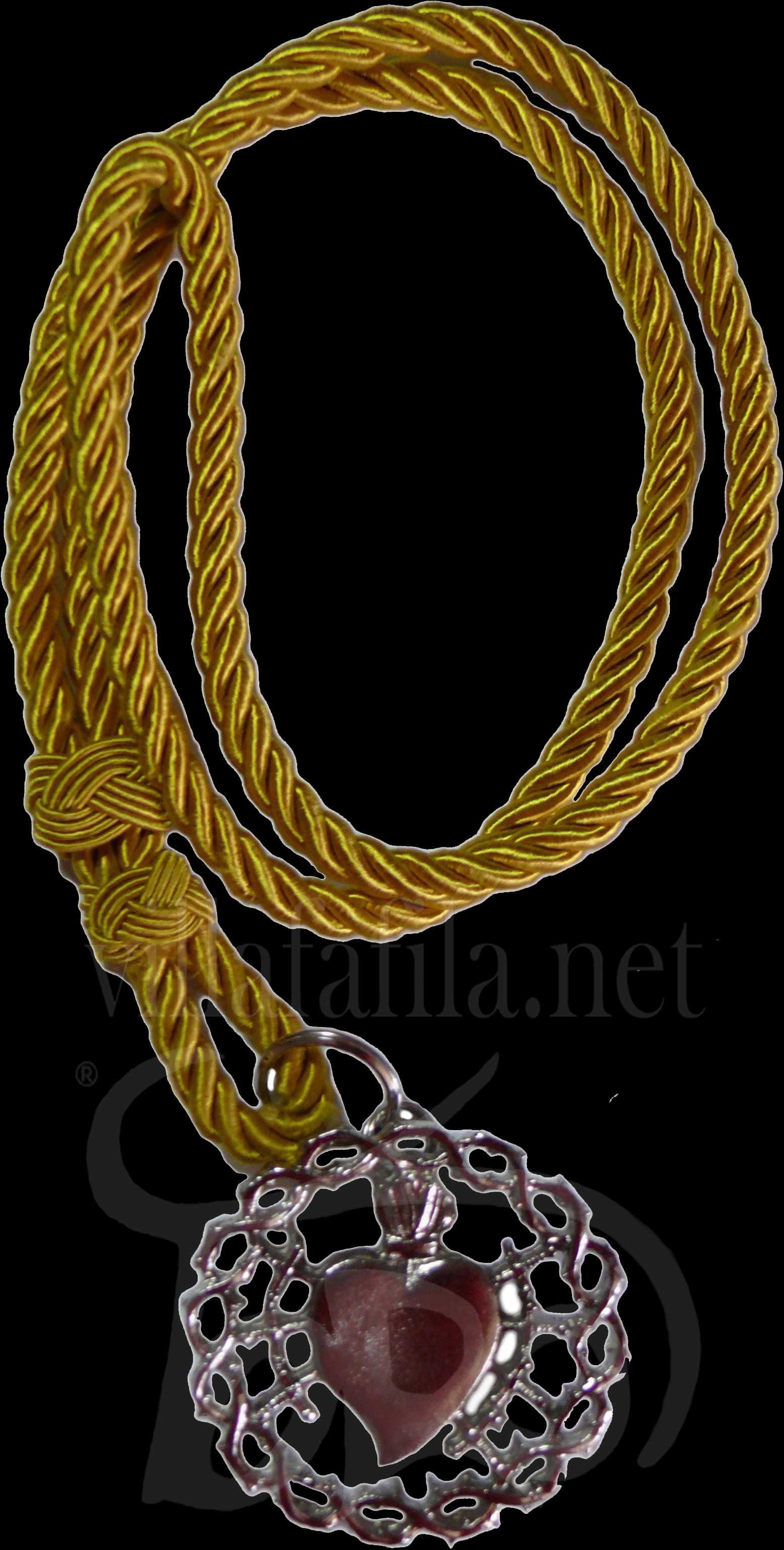
Medallion |
Procession with two elements, a banner with the anagram of the
brotherhood and carrying two candles to the side.
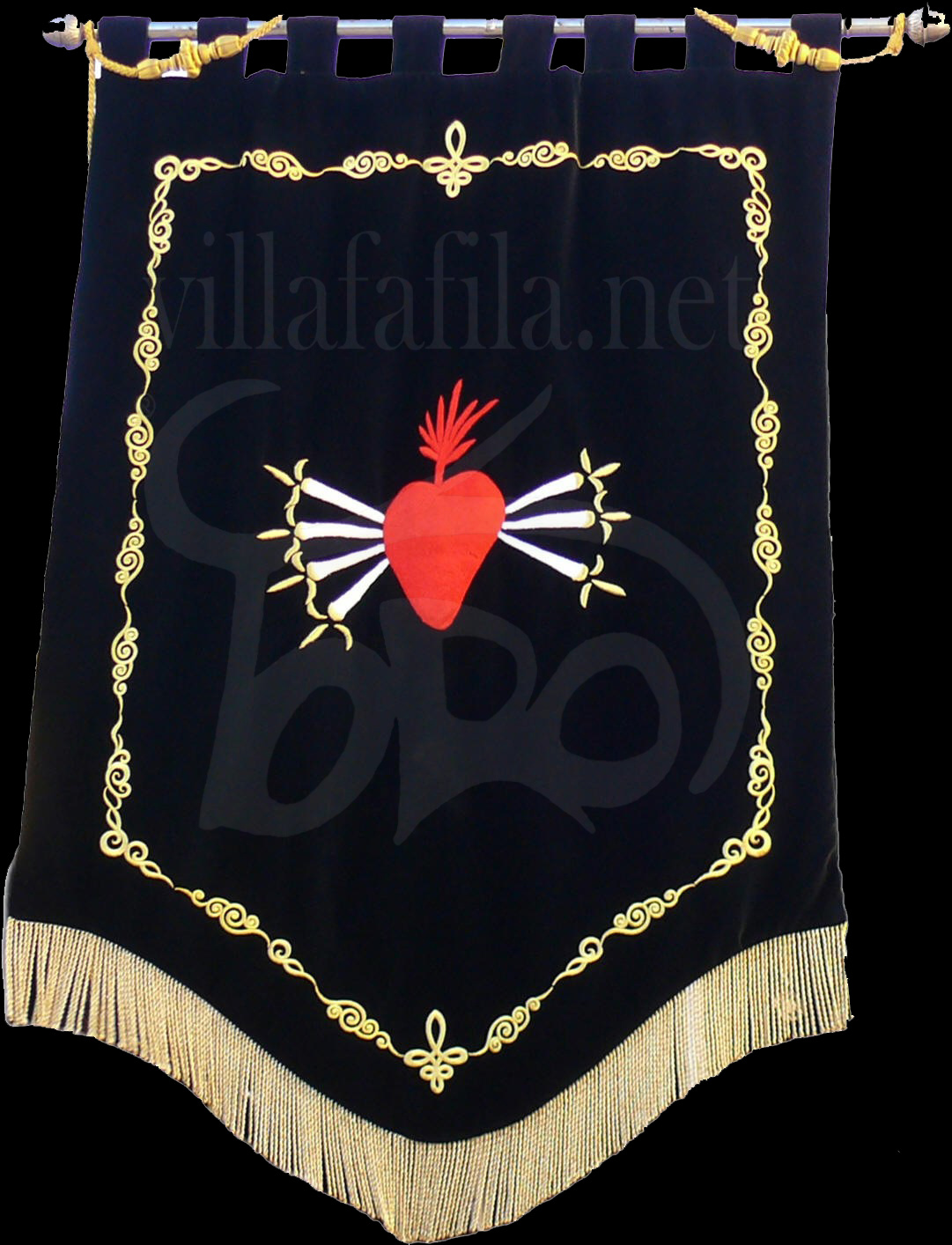
Banner |

Cofrades carrying
the Cirios |
In 2008 it is the first year that the brotherhood goes out in
procession, which, being a leap year, takes place before the
procession, the descending, once this is finished, the
brotherhood carries the Virgen de los Dolores, popularly known
as the "painful" that comes out on Good Friday in the afternoon
in the procession of the Holy Burial, in last place, together
with the images of Angustias and the Christ of the Urn
| |
|
The route of
the procession begins at the church of Santa María,
passing through Las Damas Street, San Pedro Square,
Sacramento Street, La Botica Street, Rejadarada Street,
Town Hall Square, Zamora Street, El Triunfo Street, el
Rosario street, el Moral street, Santa María square,
ending at the church
.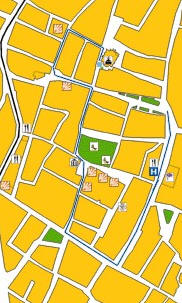 |
The brotherhood processions, first going in the middle of the
banner next to it on each side holding on to a cord the minor
brotherhoods, next to each of these another person who each
carries a candle.
Behind the banner in the middle the smallest of the cofrades,
On each side, left and right, all the cofrades form a line,
At
the end the brotherhoods carrying the image of Our Lady of
Sorrows "La Dolorosa".
|
